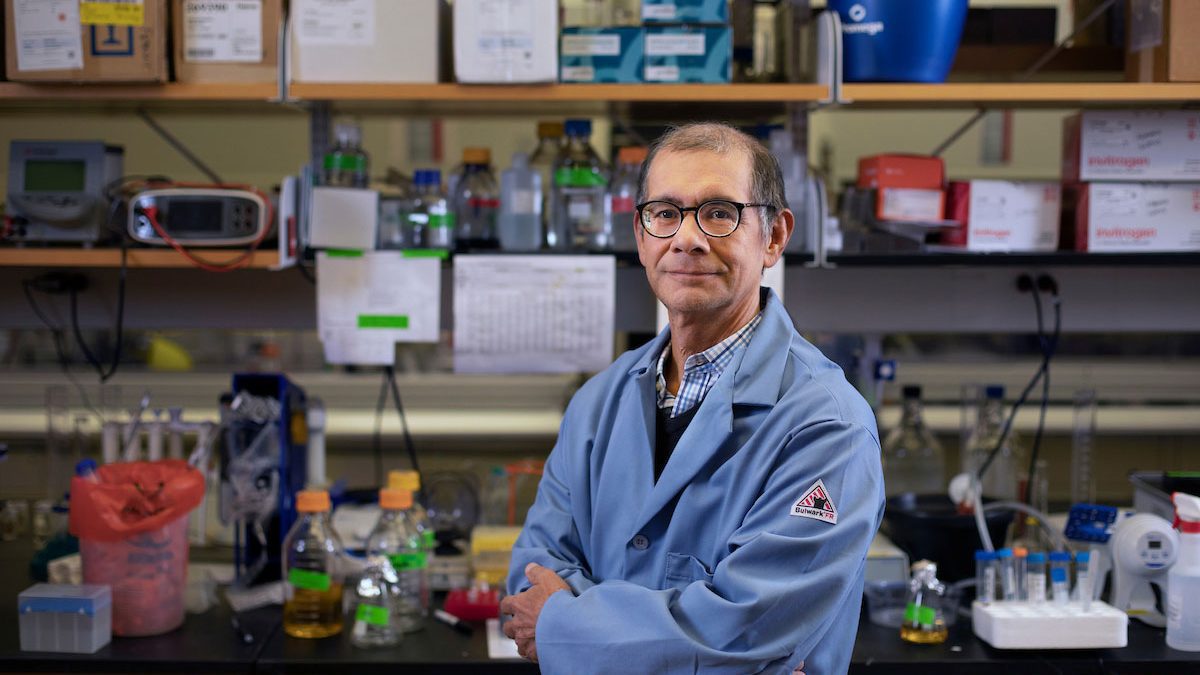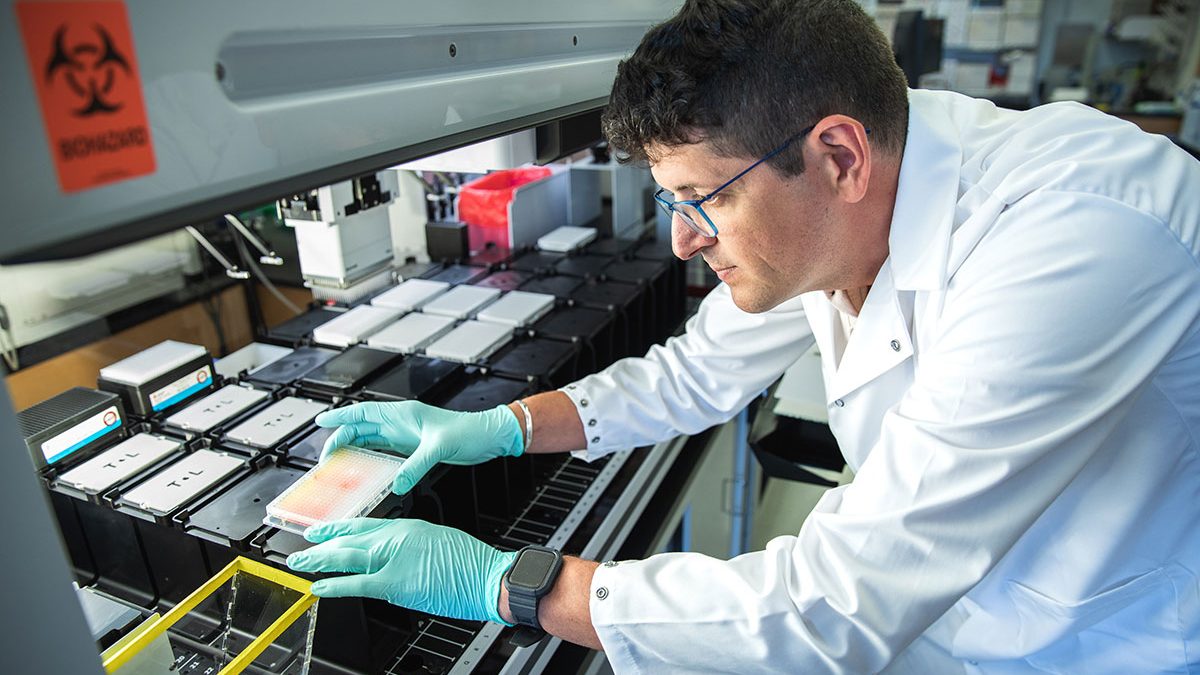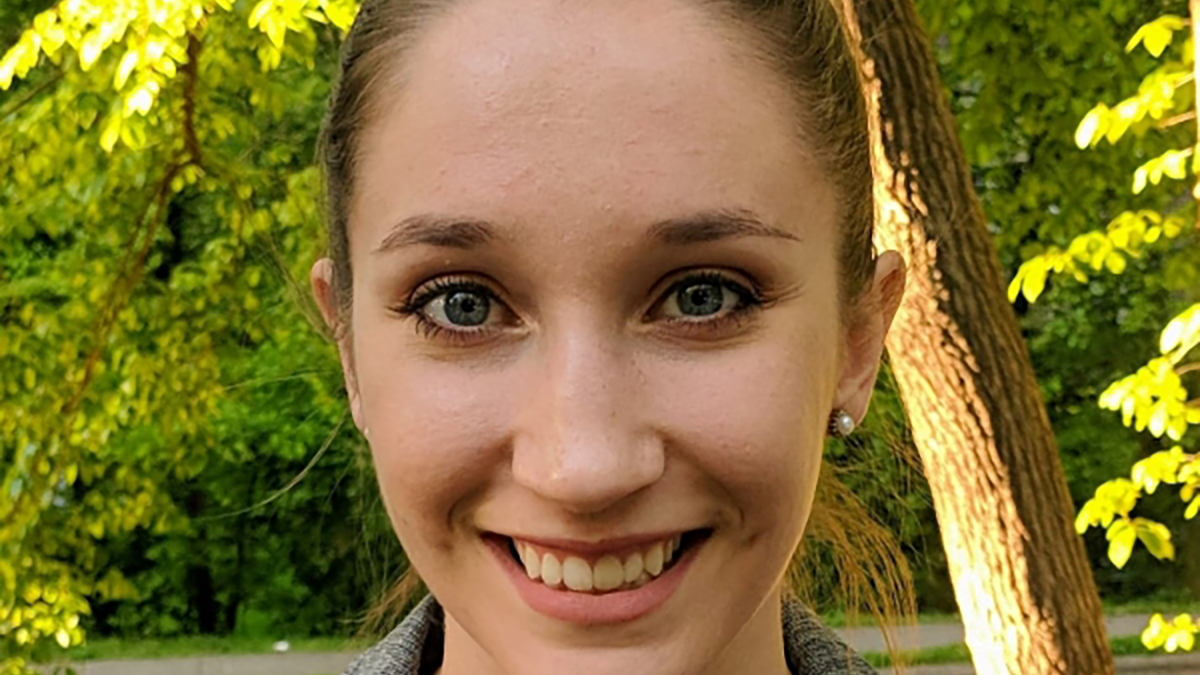Building Something Great
Published on June 12, 2019“We tackle big world problems with smart people right here in North Carolina.”

“We tackle big world problems with smart people right here in North Carolina.”
When Neal Fowler ’84 (B.S. Pharm.), ’88 (M.B.A.) rang the closing bell on the Nasdaq trading floor in August 2018 — marking Liquidia’s initial public offering from the prior month, he thought about the people around him.
The CEO of Liquidia Technologies thought about the patients whose lives would benefit from the products his company was developing. He also thought about the scientists who had dedicated nearly 20 years to the nanotechnology they helped develop as post-doctoral researchers at the University of North Carolina at Chapel Hill.
“It was a moment of great academic work coming out of Carolina,” Fowler said. “A lot of UNC knowledge and expertise went into it. It was a cool journey for a lot of people.”
In 2004, the business had spun out of the University of North Carolina at Chapel Hill’s chemistry department, where Joseph DeSimone and Ed Samulski had developed new means of altering the physical characteristics of particles. When Fowler first saw the technology in 2007, he immediately recognized its potential, “love at first sight” as he tells it. Liquidia could create nanoparticles smaller than a virus, change the size or shape, or change its chemistry. When Fowler became CEO in 2008, the company’s strategy for the technology was shifting toward the life sciences.
“A particle’s size, shape and chemistry matters a lot when thinking about how it trafficks in the human body,” he said. “We can load the particles with drugs and deliver them in very specific and effective ways.”

Today, Liquidia is pioneering an inhaled powder that holds the potential to treat pulmonary arterial hypertension, a rare, chronic and progressive disease that can lead to heart failure and eventually death. The company is also studying a sustained release injectable product that can potentially extend pain relief following surgeries, possibly diminishing or eliminating the need for opioids.
For Fowler, ringing that Nasdaq closing bell was more than just a celebration of a decade at Liquidia; it was a culmination of a 30-year career in the pharmaceutical industry rooted in experiences at Carolina and at the Kerr Drug store around the corner from his childhood home.
Growing up in Raleigh, the Kerr Drugs store in the Ridgewood Shopping Center and longtime pharmacist B.O. Lockhart showed Fowler the power of a career in pharmacy.
“Mr. Lockhart was an institution there. I looked up to him,” Fowler said. “As I got older, I appreciated what he did for a living. I loved his medical understanding and thought, ‘That’s a great career, doing what he did day in and day out.’”
When Fowler set off to Carolina, he knew a career in the life sciences was ahead, but he wasn’t sure which field.
“I knew if I decided to attend dental school or medical school, I would need to know everything about medicine and drugs,” he said. “Why not go ahead and get the basis of that understanding as an undergraduate at the pharmacy school? I could be a pharmacist coming out of school and still have patient interaction. I never looked back.”

The UNC Eshelman School of Pharmacy provided a technical and scientific foundation that has continued to guide Fowler throughout his career, but a single elective course, “Pharmacy Administration,” opened his eyes to a different experience in the pharmacy world.
The late Mel Chambers, a professor and institution at the school and a mentor to Fowler, taught the class, which offered students the chance to run their own drug store in a computer simulation, teaching students the basics of accounting and marketing, among other things.
“Over the course of the semester, he was quietly teaching you business concepts,” he said. “How to read an income statement, a balance sheet … things you didn’t learn anything about when you were learning chemistry, physiology and anatomy.
“He brought in people from various parts of the drug industry, people who went into pharmaceutical research or people making a career in sales in the industry. I was exposed to an entire side of pharmacy that I had never considered.”
All of a sudden, Fowler became fascinated in the business aspects of pharmaceuticals. He knew an M.B.A. was in his is future. So he graduated, took a job as a pharmacist at Kerr Drugs and worked his way up to store manager, and after two years, earned his M.B.A. at UNC Kenan-Flagler Business School. Combining a life science degree in pharmacy with an MBA was not an obvious path in those days, but it helped propel him through the pharmaceutical industry. He spent 13 years at Eli Lilly and another seven at Johnson & Johnson’s biotech business, ultimately running their biotech business, Centocor.
After 20 years away from North Carolina, he wasn’t sure he’d return. But those years set him up for what came next. The opportunity to helm the RTP-based Liquidia — putting together all of the things he learned at Carolina and in that career — brought him back to his home state and afforded him the opportunity to make patients’ lives better and to advance a growing startup culture in his home state.
“I love building things that are sustainably great,” he said. “It’s what I’ve tried to do at Liquidia every day. We tackle big world problems with smart people right here in North Carolina.”






